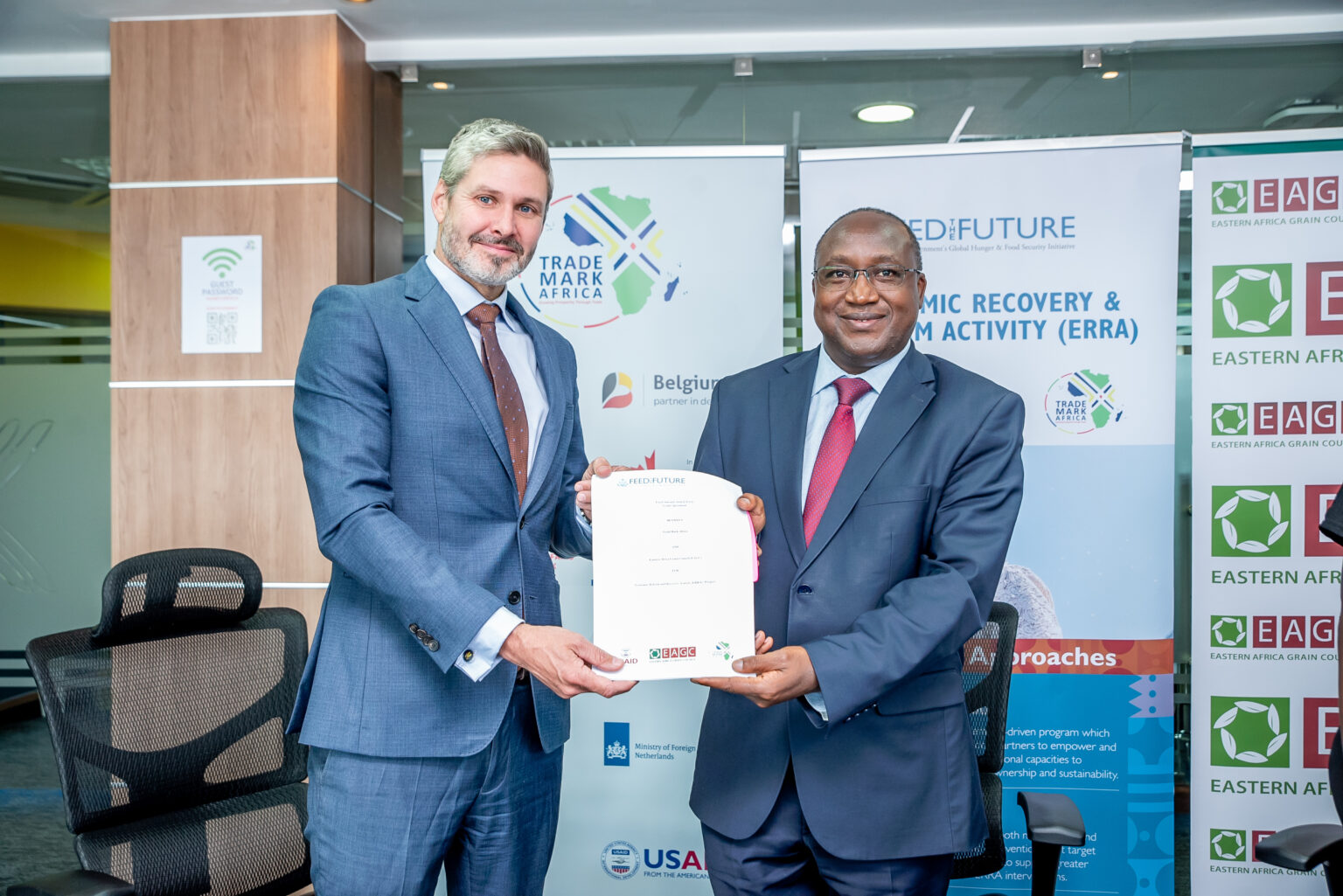- EAGC funding seeks to tackle trade challenges directly by removing trade impediments and building food export capacity in Kenya, Tanzania, and Uganda.
- This is across export value chains such as Maize, Beans, Millet, Sorghum, and Rice.
- Further, a core part of this is to increase the ability of grain producers to export both regionally and to the rest of the world.
Food export competitiveness in East Africa
Through USAID’s Economic Recovery and Reform Activity (ERRA) program, the United States government has awarded a three-year grant worth $2 million to the Eastern Africa Grain Council (EAGC).
The funding is geared towards strengthening the competitiveness of export-oriented staple food value chains in East Africa.
ERRA program is delivered by TradeMark Africa (TMA), with funding from Feed the Future. Via its five-year $75 million program, USAID and TMA are driving transformative trade and investment reforms in the East and Horn of Africa.
This is to create jobs in the staple crops and textiles sectors, especially for women and youth.
A core part of this is to increase the ability of grain producers to export both regionally and to the rest of the world.
According to the council, East Africa’s immense potential for food grain production and trade has been hindered by low production rates, poor post-harvest management, and climate pressures.
“These challenges contribute to the low competitiveness of its staples in regional markets, reduced cross-border trade, production deficits and post-harvest losses that threaten the region’s food security,” says the council.
Read also: Kenya and Uganda forge infrastructure deal to streamline East African trade
TradeMark’s CEO David Beer said the facility with EAGC will directly tackle these challenges, removing trade impediments and building grain exporters’ capacity in Kenya, Tanzania, and Uganda across export value chains such as Maize, Beans, Millet, Sorghum, and Rice.
He spoke during the signing ceremony, where he further revealed that the collaboration will boost regional grain exports.
“This by spearheading innovative strategies such as grain business hubs, or G-bubs which are operated by farmers, who will leverage technology to improve grain quality and drive up trade,” Beer said.
It was also noted during the meeting that a major impediment to grain trading across the region is the businesses’ ability to comply with international standards.
With the funding, EAGC aims to support over 80 Small and Medium-sized Enterprises (SMEs) to meet sanitary and phytosanitary (SPS) measures successfully.
The measures regulate the health of traded animals and plants, and Standards Quality Infrastructure (SQI) requirements govern quality, health and safety systems, and environmental conservation.
According to EAGC executive director Gerald Masila, the partnership aligns with its goal of facilitating structured, inclusive, and profitable grain trade.
Read also: TradeMark East Africa rebrands to TradeMark Africa, expands to West Africa
He highlighted the benefits for the sector, including access to agriculture-related financing, capacity building, and mentorship, leading to a commitment to industry-own checks or industry self-regulation.
“The expected outcomes promise to transform lives and contribute significantly to regional economic prosperity,” he said.
“Our focus is on practical, impactful solutions. By fortifying grain business hubs and enhancing the capacities of SMEs, we are building a foundation for sustained growth. And the information hub will be instrumental in informed decision-making, driving policy changes that positively impact food security and trade dynamics.”
EAGC, under the partnership, will also seek to establish an information hub to help shape national and regional food balance sheets by providing real-time data and insights.
The hub seeks to create an enabling environment for implementing prioritized trade policies. In doing so, it opts to catalyze food security and reinforce the region’s position in international trade.
EAGC and its mandate
The EAGC is a regional, not-for-profit council of firms and organizations in the grain value that is “the leading voice of the grain industry in Africa.
It is mandated to facilitate efficient, structured, inclusive, sustainable, and profitable grain trade through various interventions and programs, including policy research and advocacy, provision of market information, training, capacity building, and developing structured grain trading systems.
EAGC’s mandate spans ten countries: Kenya, Uganda, Tanzania, Rwanda, Burundi, DR Congo, South Sudan, Ethiopia, Malawi, and Zambia.
Read also: Kenya’s exports surge within EAC and Comesa in Q3, trade deficit shrinks
